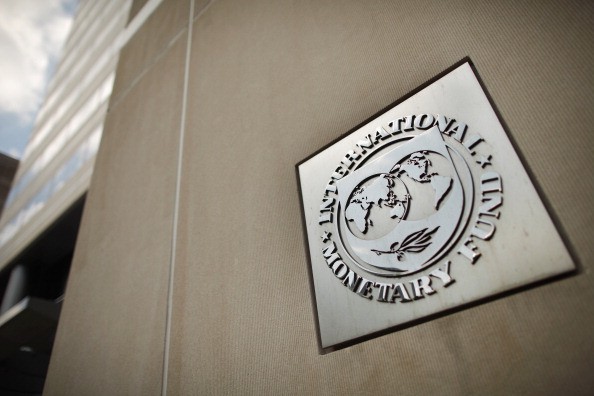Concerns over the health of the Chinese economy could trigger a “bloodbath” on financial markets if a hard landing materializes, the International Monetary Fund (IMF) has warned.
China's policy choices would have "increasing implications for global financial stability" in the succeeding years as the world's second largest economy starts to open up its bond and equity markets, the IMF said in a report on global financial market stability published Monday.
"We do see China as unique so far, in terms of news about its economic performance affecting markets elsewhere," said Gaston Gelos, the IMF division chief for monetary and capital markets.
In the report, the IMF noted that emerging market economies such as China, India, Brazil and Russia have driven more than half of global growth over the past 15 years. And with stronger trade ties and financial networks causing spillovers from these countries to become "the norm, not the exception," the risk of future shocks has increased and could potentially cause reverberations around the globe.
The IMF calculated that emerging market spillovers now make up for a third of the fluctuations seen in equity and currency markets in developed nations.
Citing the massive stock market sell-off after China devalued its currency in 2015, the IMF said that the growth of the Chinese economy had an "increasing" and significant impact.
"The impact of shocks to China's fundamentals on global financial markets is expected to grow stronger and wider over time," the fund said in its report.
"Clear and timely communication of its policy decisions, transparency about its policy goals, and strategies consistent with achieving them will, therefore, be essential to ensure against volatile market reactions, which may have broader repercussions."
The IMF also urged international policymakers to do more in curbing corporate debt, which it has previously said could result in a wave of defaults as the U.S. hikes interests rates.
"Fire sales" of assets by fund managers could also worsen emerging market spillovers during a downturn, if mutual funds rushed to sell illiquid assets, the IMF warned.
Financial "spillbacks" caused by policy actions in advanced economies, including a tougher monetary by the U.S., underscored "the importance of enhanced international macroeconomic and macroprudential policy cooperation," the fund said in its report.
In a separate report, the IMF warned the herding behavior of the $24 trillion life insurance sector is creating systemic risks that could make firms "too many to fail."
The low interest rate environment had encouraged many companies to take in more risks in order to "resurrect their fortunes," particularly among smaller firms, the fund said.
"Jointly firms can propagate shocks, if they act similarly," the IMF warned.
Analysts are expecting Christine Lagarde, IMF's managing director, to announce on Tuesday that the fund will downgrade its global growth forecasts ahead of its spring meeting in Washington this month.
Chinese lawmakers are trying to shift the economy away from its reliance on investment-driven growth and more toward consumption.
While the IMF does not expect a hard landing in China, "porous" capital controls and "sizeable" capital flows linked to Beijing are a good indication that the country's limited financial integration would change in the coming years.
The fund noted the "striking" recent growth in cross-border banking and said that China is on course to "emerge as a major global banking hub" in the coming years.
"Purely financial spillovers from China are still very small, but likely to grow considerably as China gradually continues to integrate into the global financial system," Gelos told The Daily Telegraph.



























